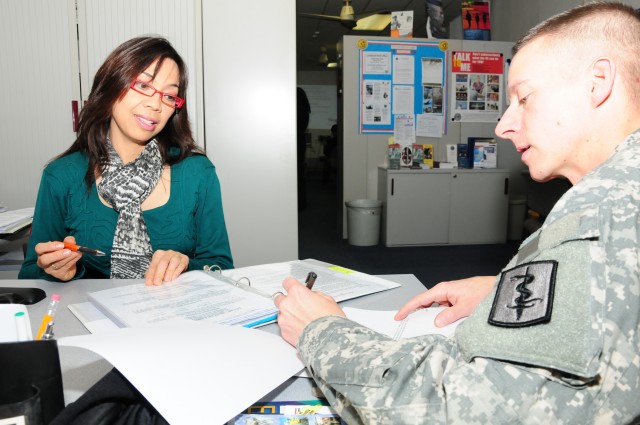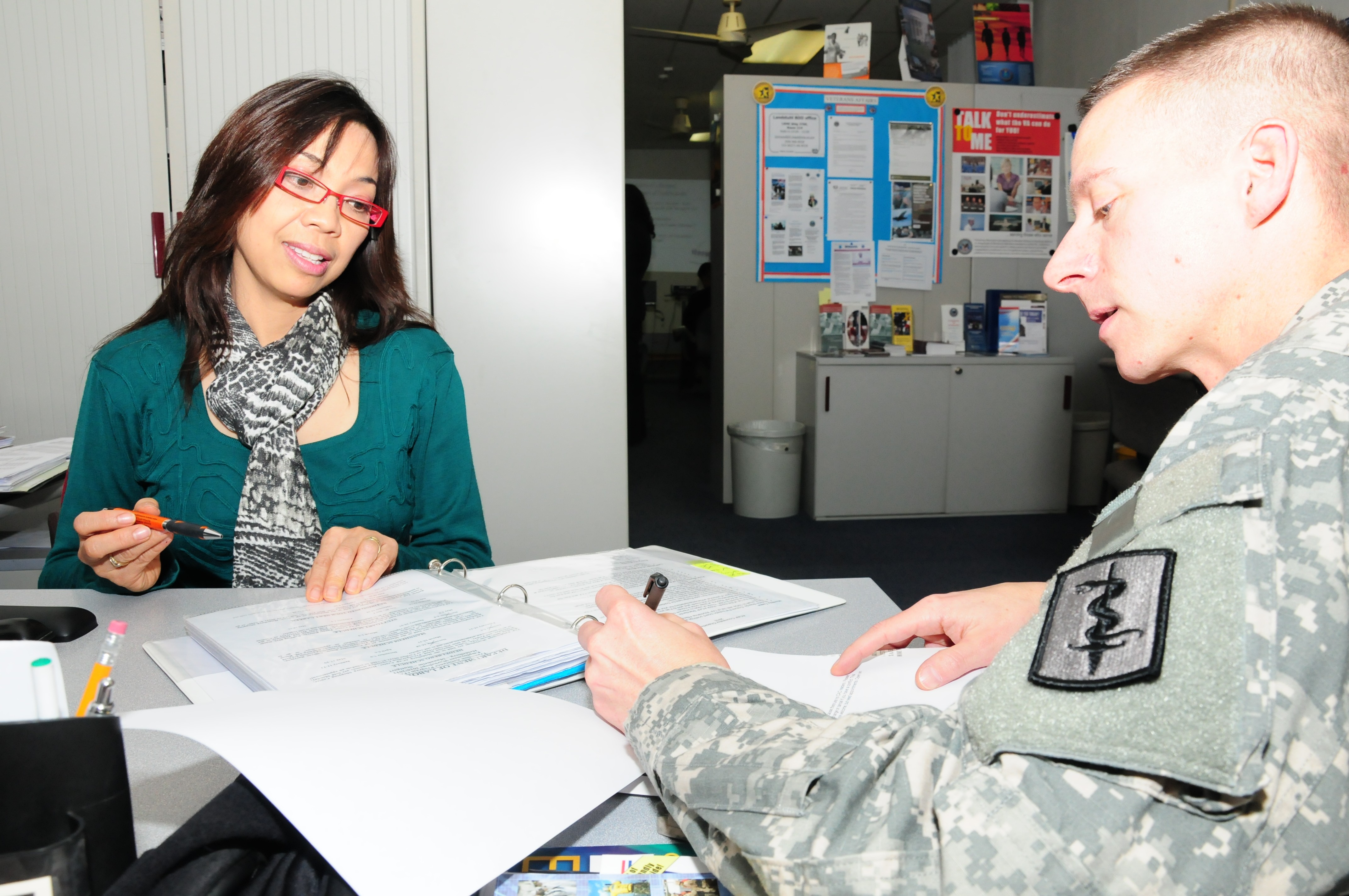HEIDELBERG, Germany - On the second floor of Bldg. 3850 on the Heidelberg Shopping Center Kaserne, there's a flurry of activity. A chorus of voices, intermingled with the clicking of computer keys floods the room.
One of those voices is that of Master Sgt. Robert Zuch, 30th Medical Command Soldier.
After 21 years of service Zuch is just about ready to hang up his boots and he came to the Heidelberg Army Career and Alumni Program office to begin looking at retirement options.
"I think it's time and I want to get my family settled," Zuch said. "I have a younger family. My oldest is 8 and I go down to 2 and I'm trying to get them settled into one location versus moving every two to three years."
Although he's still wading through the initial stages, Zuch admits his experience so far has been slightly overwhelming.
"(There's) a lot of stuff and a lot of information. I mean I knew there was a lot involved just from speaking to people that I knew here that had retired. But once you get in here and sit down and play with the computers and begin going through it all you realize just how much it involves."
Zuch has not submitted his official retirement paperwork yet but the New York state native says once he does, he hopes to continue his service as a government civilian.
At the other end of the room is Cpl. Jennifer Jagelewski, an information systems analyst and operator for U.S. Army Europe Battle Command Systems Division G-3.
After 5 and a-half-years in the military, Jagelewski decided to separate from the Army to pursue other career opportunities.
She participated in the Transition Assistance Program workshop where she, and other Soldiers like her, learned resume writing tips, interview techniques and other professional skills to help them land a job in the civilian market.
Although she's decided to leave the military, Jagelewski said she's also grateful for all the skills she learned during her time in uniform.
"The Army taught me a lot and I also grew up a lot. When I first joined I didn't knew what I wanted to do with my life. I had no direction. And I didn't know anything about computers when I joined and now I can build computer networks from scratch," she said.
The Michigan native is scheduled to separate sometime in June.
Julie Hodge is the contract installation manager for ACAP offices in Mannheim, Heidelberg and Stuttgart.
She, and her staff assist the many different faces flowing in and out of the ACAP office.
Hodge is often one of the first people new clients meet as they plot their transition from Soldier to civilian, some voluntarily and some not.
Regardless of the circumstances, Hodge said every Soldier coming through their doors, should take full advantage of ACAP, especially now.
"For Soldiers that are getting out or retiring, if they don't have these professional skills, it will take them much longer to find a job and we want to help them with that," Hodge said. "For Soldiers who may be separating involuntarily, they may have an even more difficult time finding a job.
Unemployment with veterans is higher than the national average, so the program is designed to assist them in knowing, finding or learning those skills so that they can be successful in the civilian world.
Hodge added that she feels there are still misconceptions among leaders about the ACAP program. "Sometimes I think the supervisors at varying levels, not necessarily at the command level or the first sergeant level but sometimes platoon sergeants or supervisors, have the misconception that ACAP is just something that you go in and do and you check the block and you get the information and then you're done. That's not true. It really is a process and that's why we encourage clients to come as soon as they're eligible."
All transitioning Soldiers are required to attend a pre-separation brief where they have the opportunity to learn about ACAP services available to them.
Soldiers who are separating from the military can start using ACAP services one year out and Soldiers that are retiring can begin two years out.
The program also provides information on veteran's benefits.
"We don't try and candy-coat things," Hodge said. "The job market is tough out there and I think if Soldiers would come in early and look at all the work that needs to be done to apply for jobs and search for jobs, then they could consider their options a little bit better. We actually encourage them to look at all their options so they are not waiting until the last minute to make their decision."
For information on ACAP services in Mannheim and Heidelberg contact the Heidelberg office at DSN 370-7505.
Services for both communities will be consolidated beginning Jan. 18 when the U.S. Army Garrison Mannheim Military Personnel Division transfers its functions, including ACAP services, to USAG Baden-WAfA1/4rttemberg.
In the Kaiserslautern area, contact DSN 483-7089. The Kaiserslautern ACAP is located office in Bldg. 3245 on Kleber Kaserne. You can also visit www.acap.army.mil.


Social Sharing